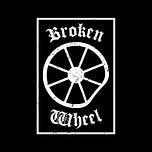- Surely oppression drives the wise into madness, and a bribe corrupts the heart.

Well, what is so hard to get about this verse? Of course, oppression drives people mad. History is a good enough teacher here.
The current war with Russia and Ukraine isn’t their first conflict. The famines that ravaged Ukraine during the USSR’s rule were brutal.
If you have the stomach, you can find pictures of people selling human body parts in the streets. Fair enough to call that madness?
Think about the loving families forced to make decisions they never dreamed of when their neighbors lost all of their senses.
Rather take your lessons from the Bible? Read what the Prophets said the people of Israel would do while they were under siege.
It’s not light reading.
Money for one’s loyalty or a blind eye always leads to corruption. It’s easier to sleep with a guilty conscience when your pillow is stuffed with hundreds.
But something has happened in the last half that is different from the first. A bribe is accepted whereas oppression is received.
Allow yourself to take another step back. What is the context of Chapter 7? What have we read in the other verses of this chapter?
It has shown us the benefits of wisdom, of not being one overcome by the foolishness of this world or it’s frivolous joys.
We use conjunctions to bring sentences together with similar structures or ideas. Rarely do we say, “My 401K is seeing great returns, and can you bring the sofa in through the back door?”
The conjunction brings conjoining ideas together. What have we not seen?
Looking carefully at the Greek, we read something like this. Surely extortion turns a wise man into a fool.
That honestly reads more in line with what we have already seen in the passage, though madness is a good stand-in for fool.
Do wise men perform acts of oppression? Do wise men extort others? No. They stand in the gap when oppression arises.
They try to bring people together by helping them remember who they are, not what their circumstances pressure them to be.
If a wise man hurts others for his gain, if he takes bribes, if he grinds those less fortunate than himself, is he wise? Is he not a fool and corrupt?
Now the verses join together. Both the accepting of bribes and the carrying out of oppression show the assumed wise man as the fool he is.
What is the lesson for us? Obviously, do not commit acts of oppression and do not accept bribes. Done. See you next time.
Perhaps, there is another truth we can find here. One in keeping in line with the chapter. Another purpose for this text.
When the temptation of iron rule or corrupt money comes your way, how will you resist?
Perhaps you hope to stand in the day, with your will to do good. But don’t you know no man is good?
Ah, you are a new creature, but does not the old man linger? How will you convince him to stay quiet when it seems so convenient to let him run the show?
You must learn to be wise. You must ask for wisdom. Learn sorrow is better than laughter, that the house of mourning is preferred to mirth, that rebuke is better than foolish singing.
Be no longer a child, tossed about.













Share this post